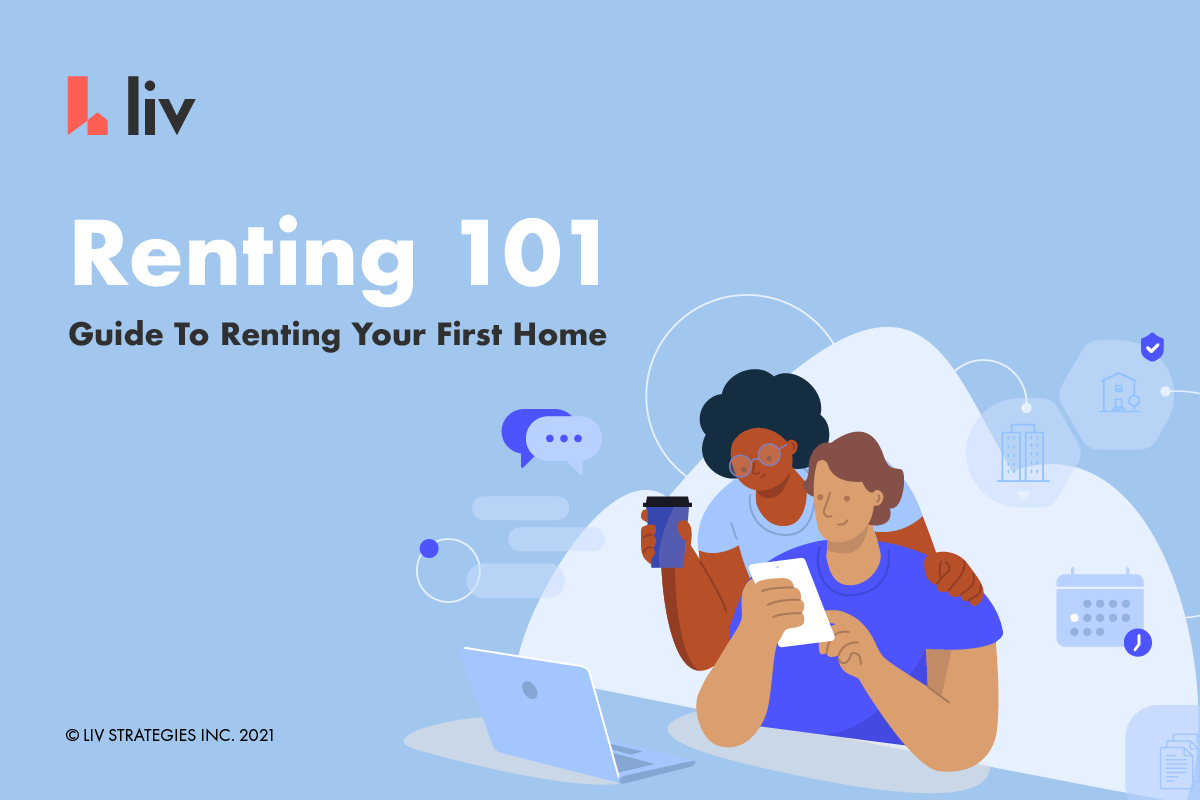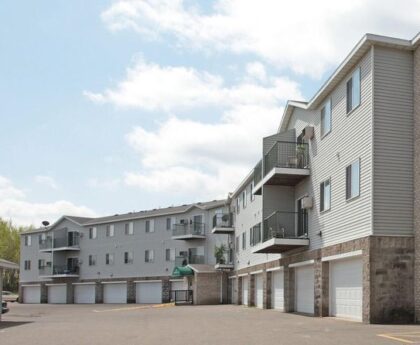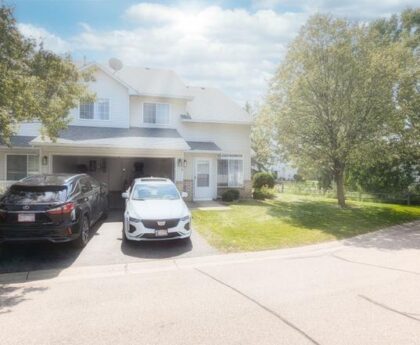- Finding the Right Apartment
- What to Consider When Looking
- Paying the Security Deposit
- Reading and Understanding Your Lease
- Your Move-In Checklist: 7 Must-Do's
- New Tenant Basics: Meet the Neighbors and Community Rules
- Preparing for Move-In
- 5 Tips for Finding Affordable Housing
- Your First Month in Your Apartment
Finding the Right Apartment
Finding the perfect pad is exciting, but also kinda overwhelming. Lots of options, right? Think about your needs first. How big an apartment? Near work, schools? Parking situation is big too.
Budgeting for Rent
Rent's a major chunk of your money. You gotta factor in the price of utilities. Also, deposits, move-in fees…don't forget these add-ons. Make a realistic budget – track your expenses for a month before diving in. Also think, how much you are actually able to afford per month before you sign any contracts or leases.
- Track income
- Estimate expenses (rent, bills)
- Avoid debt, check your credit report
Securing Your Lease
Your lease is your agreement – protect yourself by getting it in writing and making sure you read every clause before putting your signature down on any paperwork.
- Thorough lease review
- Ask questions; get explanations. Every single line of agreement matters
- Read clauses, terms clearly before signing!
Moving In: Important Checklist
Moving is a real big deal. Take it step by step, one task at a time. Pack your stuff smart, organize in advance, save on boxes; maybe look for free stuff or use your friends.
- A week before: Book your moving truck; arrange help
- Two days before: Organize your rooms for unloading
- Day of the move: Take one room at a time. Don't worry, slow and steady wins!
Neighbors and Community
Get to know your neighbors! Be respectful. Your safety is also very important and check out whether there is something going on nearby like stores, parking areas, and crime statistics for safety, convenience, and for fun. Also, remember about the rules of your community or area; know your rights and be aware of all these details.
- Introduce yourself to neighbors
- Respect neighborhood rules
- Check on area for your comfort and safety
- If you need any specific things for your day-to-day life
What to Consider When Looking

Source: liv.rent
Finding a place to live is a huge decision, folks. It's about more than just four walls and a roof. Think about your lifestyle, your budget, and your needs.
- Location, location, location. Is it close to work, school, or entertainment? Commuting is key. Check traffic patterns and public transport options.
- Budget is boss. Seriously, calculate rent, utilities, and other costs. Leave room for incidentals.
- Space & Amenities. Do you need a big yard? A parking spot? A gym? Write it down, list it!
Paying the Security Deposit

Source: turbotenant.com
A security deposit is like an insurance policy for landlords. It safeguards them if things get damaged during your stay. Make sure you fully understand the deposit amount and rules about return policies and stipulations for charges.
- Know the policy! Always get everything in writing, folks. This way you have evidence for your return and both parties understand terms clearly. What damage falls under your deposit amount, read clearly.
- Don't Overlook Exceptions! Keep track of how it was stated from the beginning (e.g. worn paint, routine maintenance etc.), all damage you report or the landlord states. Pictures! Essential!
Reading and Understanding Your Lease
A lease is a legal agreement; it covers EVERYTHING.
- Duties: Cleanliness, maintenance, responsibilities- it's all outlined. Pay attention!
- Deadlines: What are you responsible for and when? Payment deadlines, maintenance requests? It's crucial!
Read the lease before signing. Ask for explanations. Discuss anything unclear or vague; be clear.
Your Move-In Checklist: 7 Must-Do's
Moving in, hey, this is important, it is. Get things straight quickly:
-
Take Photos: Capture the condition of everything on move-in day—walls, appliances, etc.
-
Inspect the Premises: Are there any pre-existing problems? This way, you can bring attention. Report!
-
Get Receipts: All fees and deposits—evidence is key, right!
-
Arrange Utilities: Have power, water, and internet sorted. Plan the connection schedule for new utilities
-
Make a To-Do List: Unpack boxes, arrange furniture, get set up with basics.
-
Check for Problems: Find any outstanding maintenance requests or issues
-
Communicate: Get all of this in writing, okay? Ensure all agreements are understood and agreed on both parties and dates written down!
New Tenant Basics: Meet the Neighbors and Community Rules
Moving in involves neighbors and the complex’s rules.
-
Community Vibes: Get acquainted. You are joining the community so get involved (if interested in social circles or gatherings!). Introduce yourself to other people in the building or apartment.
-
Be Courteous: Follow building rules— parking, noise levels. Treat people well— everyone shares the same environment, good manner is always key. Respect the peace.
-
Report Any Issues: Don't just ignore it if anything’s wrong or odd. It's better to raise your voice quickly if it's not immediately apparent to neighbors around you that's an urgent need to be handled as the building. Be upfront. Communicate.
Preparing for Move-In
Getting ready to move in can be overwhelming, like packing up your whole life! But with a plan, you can make it less stressful.
Exploring Budgeting Options
Budgeting is like managing a treasure chest of money. You need to carefully figure out how much you're earning, and where you can cut some extra cost. This can include:
- Calculating expenses: Rent, utilities, and other household bills. Do the math to know your expected costs and monthly payment amount.
- Savings: Set aside enough money for unforeseen circumstances. Maybe an unexpected appliance breakdown. Have extra cash for moving and first month's rent.
- Emergency fund: Create an emergency fund with money that you have to tackle any possible issue. An empty bank account is so painful!
- Spending track: Keep tabs on all expenses to avoid unnecessary debts. Do a spending track in an excel sheet to understand every amount going into your wallet.
Getting Renters Insurance
Renters insurance protects your belongings, like your precious stuff and keeps you financially covered. You should seriously consider getting renters insurance:
- Coverage options: Review your options. What do your coverage packages include? Learn how your renter’s insurance coverage can help with damages caused by a fire, flood, and burglary. It can help for lost items, broken items! Read and understand those contracts!
- Pricing and cost: How much is it, and what are your options, like monthly payments and deductible?

Source: rdcpix.com
Dealing with Problems When Settling In
Moving into a new place often means dealing with issues; these things could mean difficulties or unforeseen circumstances that could delay the move, problems with previous tenants and neighbors, landlord problems and other legal cases that involve your landlord.
- Neighbor problems: Be neighborly; however, issues arise like noise, or privacy problems.
- Landlord problems: Maybe there are maintenance issues with the property. Talk to the landlord. You may have questions about maintenance or things like broken pipes! Read contracts to clarify these issues beforehand! Do it carefully.
Important Documents
Moving into a new place usually brings new documentation to be considered.
- Lease agreement: Be sure you fully understand the conditions. It contains information like terms and conditions and your responsibility with rent and monthly bills! Also includes things about moving and renting in new locations. Understand what is needed for documents from the landlord
- Utilities: Set up utilities before your moving date. It is recommended to get that sorted as quickly as possible before moving day.
- Insurance details: Keep a list of essential contacts such as insurance agents or customer care personnel. Maintain your policy papers and receipts for verification at all times.

Source: nyrentownsell.com
5 Tips for Finding Affordable Housing
Finding a place to live, especially when budget is tight, can feel like a tough puzzle. But don't worry, you can absolutely do it! Affordable housing isn't just a dream; it's reachable. Here are 5 super helpful tips, tested and proven by many people I know!
How Much Can I Afford?
Figuring out your budget is a huge step, trust me. Before you start hunting, sit down and get real with your spending, make a detailed plan and calculate precisely. Ask yourself these questions:
- What are my monthly fixed expenses?
- What about extra expenses?
- How much wiggle room do I have?
- Can I afford an extra, small expense in my monthly routine to increase the deposit?
Remember, you're aiming for a place you can manage long-term. This won't just happen with a good idea alone; it will involve patience.
3 Things You Need Before You Sign
Ready to sign the dotted line? Great! But hold up, there's some groundwork you must complete beforehand!
- Financial Proof: Landlords need evidence. Bank statements, pay stubs – show you're financially stable.
- Credit Report: Understand your credit. A good report speaks volumes, that can impact your chances greatly, and you might even need a good co-signer!
- Documentation of Income and Resources: Ensure all documentation is accurate. Have the proofs ready – it can even influence the payment methods you select!
Having everything sorted before signing prevents nasty surprises down the road.
Packing Smart for Moving Day
Moving is never easy, so how can we make it a tad easier? Pack smarter, smarter, smarter than all other moving packs! To streamline your packing marathon:
- Declutter First: Get rid of everything you don't need, avoid any future regrets when it comes to packing unnecessary objects!
- Box It Up: Label everything clearly, don't hesitate to ask any professional who specializes in moving packages for expert ideas on better and proper labelling for better results.
- Pack Strategically: Heaviest items in bottom boxes, protect precious valuables well in a careful and neat fashion. Do the best to utilize each corner wisely in order to keep it easy to handle, store, or even move. Check your items before sealing the box so you won't risk further difficulties during move.
Understanding Local Ordinances
Different areas have specific rules about rental properties. You absolutely MUST get up to speed with your specific locale's requirements and don't compromise or fail to study the essential stuff – that's the secret to staying protected!
- Know Landlord/Tenant Rights: Laws vary significantly, this can involve paying fees, or even legal consequences in some countries.
- Fees: Check the local fees to see how they can impact your situation, if any are applicable. This involves deposit amounts or monthly payments.
- Maintenance Responsibility: You've gotta figure out who's responsible for maintenance issues. Get familiar with your rights in place and stay prepared, to resolve and protect your rights, including who pays who. It's vital you clearly know!
Your First Month in Your Apartment
Moving into a new apartment is exciting, but it can also be overwhelming. Your first month sets the tone for your whole stay. Here's a survival guide to make those early weeks smoother:
First Time Tenant Budgeting Essentials
First month, big expenses! Don't let it break you! A plan saves you, cash, saves you trouble:
- Create a budget. List your rent, utilities, food, and any extra expenses.
- Track your spending. This is your superpower. Track everything for at least a month.
- Stick to your budget. Be firm with yourself! Budget means follow through, not forget about.
- Create a separate "emergency fund". Accidents happen. A cushion is crucial.
Important Forms to Complete When Signing a Lease
Lease, so many paperwork. Read through everything, this stuff's a lifesaver!
- Lease Agreement: This is your contract, check your responsibilities, tenant responsibilities!
- Acknowledgement Form: Review and double-check the information
- Utility Forms: If possible, sort this part right now
- References, Insurance Information.
Tips for Avoiding Renters' Scams
Beware of these tricks to make your landlord experience smoother:
- Verify all paperwork. Be alert with every single form! Don't trust all things at face value
- Look for Red Flags Signs like sketchy addresses, requests for upfront money. Watch your wallet!
- Trust Your Instincts: If something feels off, don't sign. Listen to what your heart says.
- Get things in writing: No verbal agreements! Everything should be written
Keeping Your Home Clean
Cleaning can be a daily hassle! However, it's more manageable if done smart:
- Declutter: Before anything else, decluttering helps you feel the ease, less mess!
- Schedule: Clean a little every day to maintain that calm, rather than getting caught in cleaning panic. Cleaning frenzy makes you stressed.
- Establish a Cleaning Routine Routine helps your home become orderly; your schedule becomes organized too!


